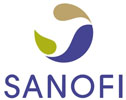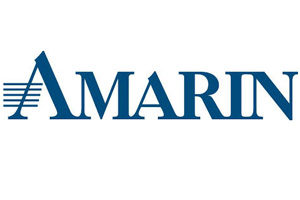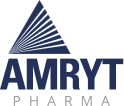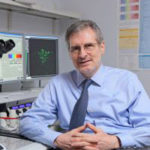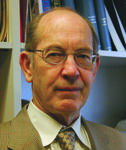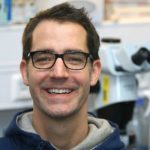Mercredi 23 juin
9h00 Ouverture de la SALLE DES POSTERS VIRTUELLE – Fermeture le 24 juin 18h00
13h15 Ouverture du Congrès
Session 1: ENDOTHELIAL CELLS AND PERMEABILITY (En)
(Modérateurs: A.P. Gadeau, J.F. Arnal)
13h30-14h00 « Neurovascular determinants of cognitive impairment: emerging role of cerebral endothelial cells » Costantino IADECOLA (New York, USA)
14h00-14h15 « The gliovascular unit, a tale of two barriers » Candice CHAPOULY (Bordeaux)
Symposium SANOFI : INHIBITION PCSK9 ET PROTECTION CARDIOVASCULAIRE (Fr)
(Modérateur : F. Boccara)
14h15-14h30 « PCSK9i et protection cardiovasculaire : Les évidences cliniques » Michel FARNIER (Dijon)
14h30-14h45 « Quelle protection au-delà de la baisse du LDL-c ? » Bertrand CARIOU (Nantes)
14h45-15h00 « Effets pléiotropes vasculaires des PCSK9i » Franck BOCCARA (Paris)
15h00-15h15 Pause
Session conjointe Société Française de Cardiologie (SFC) / NSFA
(Modérateurs : F. Boccara & Ariel Cohen)
15h15-15h30 « Nouveautés dans le traitement des dyslipidémies » François PAILLARD (Rennes)
15h30-15h45 « Nouveautés dans l’imagerie de l’athérosclérose » Alexis BROISAT (Grenoble)
Symposium SERVIER : NOUVELLES APPROCHES DANS LA PRISE EN CHARGE DES DYSLIPIDEMIES (Fr)
(Modérateurs : M. Varret, E. Bruckert)
15h45-16h00 « L’imagerie cardiovasculaire : nouvel outil pour identifier le patient à très haut risque » François ROUZET (Paris)
16h00-16h15 « Pourquoi le patient artériopathe est-il un patient à très haut risque ? » Michel FARNIER (Dijon)
16h15-16h30 « Quel objectif lipidique chez le patient en post-AVC ? » Eric BRUCKERT (Paris)
16h30-16h45 Pause 15 min
Session 2: ENDOTHELIAL CELLS AND FLUX (En)
(Modérateurs : M. Laffargue, A. Broisat)
16h45-17h15 « Regulation of endothelial mechanotransduction by mitochondria » Daniel HENRION (Angers)
17h15-17h45 « How the endothelium drives leukocyte transendothelial migration: the diapedesis synapse » Jaap VAN BUUL (The Netherlands)
17h45-18h15 FLASH POSTERS (Fr)
Ma recherche en 180 secondes!
(Modérateur : M. Laffargue)
17h45 Réunion AMRYT (sur invitation) : LOMITAPID, RETOUR D’EXPERIENCE
18h15 Fin de la première journée
Jeudi 24 juin
13h30-14h00 FLASH POSTERS (Fr)
Ma recherche en 180 secondes!
(Modérateurs : M. Laffargue)
Symposium ORGANON : LE PATIENT DIABETIQUE CORONARIEN : « It takes two to tango » (fr)
(Modérateur : P. Moulin)
14h00-14h15 « Comment mettre en musique la coordination autour du patient diabétique ? » François PAILLARD (Rennes)
14h15-14h30 « LDL-c : vers une nouvelle partition ? » Michel KREMPF (Nantes)
14h30-14h45 « iSGLT2 : symphonie inachevée ? Pierre GOURDY (Toulouse)
14h45-15h00 Pause 15 min
Session FONDATION DE FRANCE: DIABETE, PROJET PHARE DE LA FdF (Fr)
(Modérateurs : S. Béliard-Lasserre, J.F. Arnal)
15h00-15h15 « Sphingomyelinase neutre de type 2: une nouvelle cible thérapeutique dans les complications cardiovasculaires » Myriam ROUAHI (Toulouse), AO 2017
15h15-15h30 « Origines périnatales des maladies cardiovasculaires et métaboliques de l’adulte » Catherine VERGELY (Dijon), AO 2017
Symposium AMARIN : TRIGLYCERIDES ET RISQUE CARDIOVASCULAIRE RESIDUEL POST IDM ET CHEZ LE DIABETIQUE (Fr)
(Modérateurs : P. Moulin, F. Boccara)
15h30-15h45 « Epidémiologie et génétique » Maxime COURNOT (St Paul, La réunion)
15h45-16h00 « Etudes et perspectives » Michel FARNIER (Dijon)
Session 4: PEDIATRIE : FH CHEZ L’ENFANT ET L’ADOLESCENT (Fr)
(Modérateurs : F. Boccara, A. Pradignac)
16h00-16h15 « Dépistage et diagnostic de l’hFH chez l’enfant et l’adolescent » Noël PERETTI (Lyon)
16h15-16h30 « Prise en charge thérapeutique de l’hypercholestérolémie de l’enfant » Patrick TOUNIAN (Paris)
16h30-16h45 Pause 15 minutes
Session 5: LIPIDS AND INFLAMMATION (En)
(Modérateurs : B. Staels, L. Yvan-Charvet)
16h45-17h15 « Histone H4 orchestrates chronic inflammation in atherosclerosis by inducing lytic cell death » Oliver SOEHNLEIN (Munich)
17h15-17h45 « The AIM2 inflammasome exacerbates atherosclerosis in clonal haematopoiesis » Alan TALL (Columbia, USA)
17h45-18h00 Remise des Prix et clôture du Congrès
18h00 Fin du Congrès
Avec le soutien institutionnel des Sociétés :
